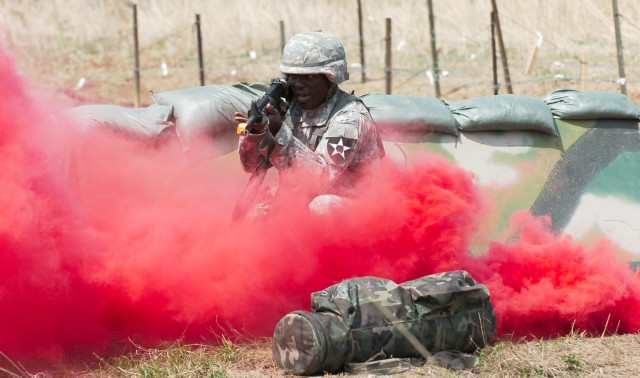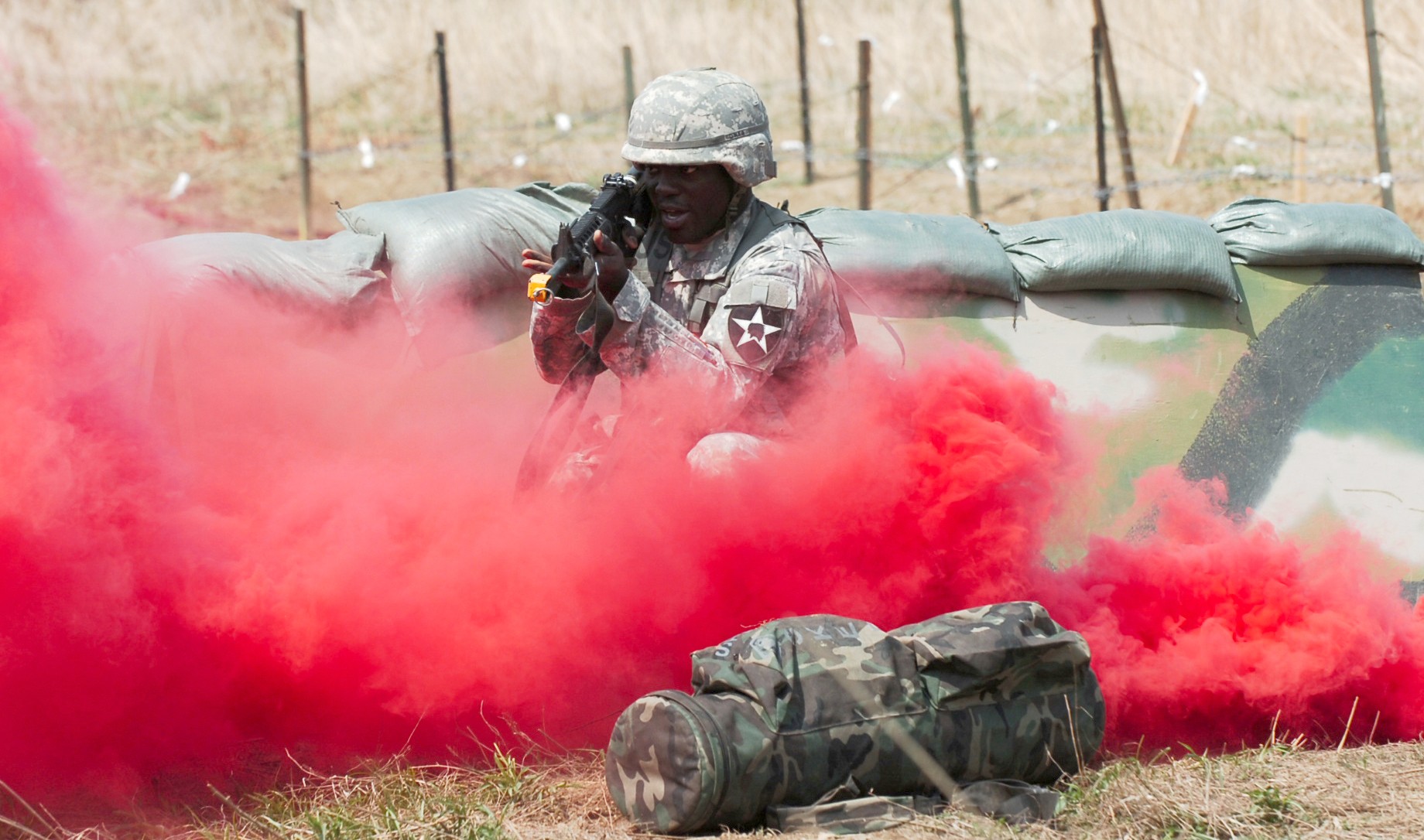WARRIOR BASE, Korea -- Being a combat medic brings a lot of responsibility on one's shoulders as they are responsible for saving lives in an increasingly dangerous world. That's why medics from 1st Heavy Brigade Combat Team, known as the 'Iron Brigade', participated with their peers from all over the peninsula in a two-week Expert Field Medical Badge course. The first rotation took place April 27 to May 8 at Korea's Warrior Base in order to increase their knowledge, improve their skills and to prove that they're the best at what they do.
The purpose of the event is to test a medic's ability to provide medical care in a combat environment and test their knowledge which included, but was not limited to, evacuating a casualty, negotiate rough terrain with a litter and setup radios to call a 9 line medical evacuation.
"The course is designed to combine warrior and medical skills and to teach medics how to take care of patients in a warzone," said 1st Lt. Sheung Li, medical material officer for 121st Combat Support Hospital, 65th Medical Brigade.
While navigating the obstacle course, smoke grenades and artillery simulations were used as candidates were required to extract a patient from a HMMWV, treat his or her injury and then move the patient through obstacles in order to get them to safety.
"We make the training as realistic as possible by recreating battlefield conditions to better prepare the medics for situations they may face in Iraq or Afghanistan," Li said.
The EFMB is comparable to the Expert Infantry Badge, and is well known throughout the Army as being one of the toughest schools to go through as the combination of medical and Soldier skills can prove too much for even the best of Soldiers.
"It has a notoriously low pass rate and is one of the hardest badges you can receive in the Army," said Sgt. Michael Rogers, a former medic and intel analyst for the 1st Heavy Brigade Combat Team. "It was more difficult than going through Air Assault School."
While the grueling two-week training can leave many Soldiers struggling to keep up, others have trained intensely for this moment and felt ready when facing the challenges during the test.
"The training my unit conducted before this set me up for success," said Pfc. Bradley Gurbacki, combat medic for Headquarters and Headquarters Company, 1st Battalion, 72nd Armor Regiment. "Overall I felt confident in my training so there were no surprises when I came here; I knew exactly what was expected of me."
Skills that the medics learn from this course not only helps them military wise but can also be applicable to the outside world.
"This is important as you can always use what you've learned to save a person's life regardless whether you're in a war zone or in the civilian world," said Gurbacki. "EFMB trains you in everything from combat to everyday life applicability."
While the test is extremely difficult and tiring, the many advantages that units and other Soldiers can receive from the medics' experience are many, not to mention that medics who receive their badge can count themselves among the most elite in the medical world.
"It benefits the unit it takes medics and turns them into subject matter experts so that they can help teach other Soldiers and overall benefits the medical readiness of our unit and the quality of our medics," Gurbacki said.


Social Sharing